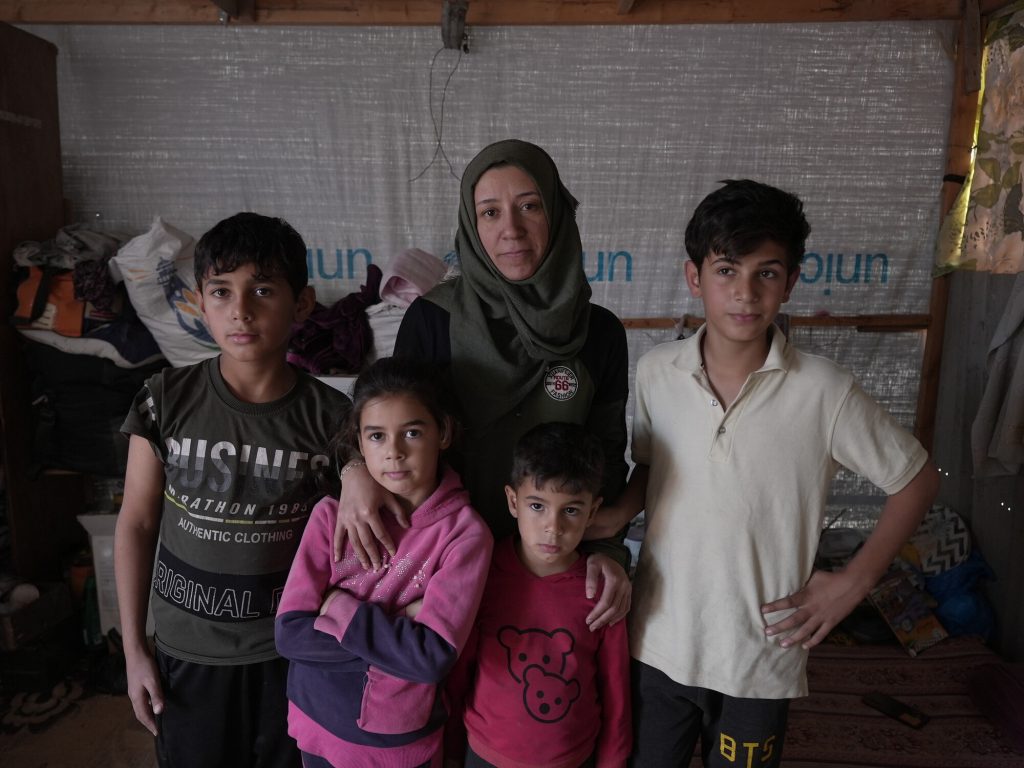Find Out Where These 5 Fashion Brands Stand on Living Wages
The fashion industry is huge and glamorous, but it is built on the backs of millions of women who live in poverty despite working countless hours making the clothes we wear. The women who make our clothes earn as little as 60 cents per hour in countries like Bangladesh, working their entire lives to earn what top fashion CEOs make in just four days.
Low minimum wages prevail as countries that produce garments for export are caught in a 'race-to-bottom' on setting wages as they seek to attract more foreign buyers.
Often minimum wages are less than half of what people really need to live.
A living wage is a simple concept – that the lowest wage paid to a full-time worker must cover a basic and dignified standard of living. It's the minimum all working people should be paid if they are to escape poverty. A living wage should be earned in a standard work week (no more than 48 hours) and be sufficient to afford a decent standard of living for a worker and their family.
A decent standard of living includes nutritious food, water, energy, housing, education, healthcare, childcare, clothing and transportation. It also includes savings for unexpected events.
Canadian companies, like all global brands, have significant purchasing power and should use this as leverage to ensure the women who make our clothes can lift themselves out of poverty.
TAKE ACTION NOW: Reach out on social media using our brand tracker to tell companies that you don’t want poverty woven into the fabric of your clothes.
A credible commitment statement with clear time frames and milestones is critical to ensure brands develop strategies to start paying a living wage in their supply chain and turn these good words into actions. It also ensures that brands are transparent throughout their journey. We will be using a brand tracker to show where companies are at in their move towards living wages. The tracker is meant to be a tool to track progress and hold companies accountable to their commitments and international obligations.
The brand tracker scores five Canadian companies on their commitment to a living wage:
Aritzia
 Aritzia reports it is committed to ”collaboratively developing a roadmap towards economic security” with its suppliers. Over the past year, it has created a data collection methodology and framework to gather wage data across its supply chain and is planning to build wage ladders. (Note: A wage ladder is a tool to compare wage levels to recognized living wage benchmarks). While these are important steps, Aritzia has not explicitly published a commitment to paying living wages in their supply chains nor set any timeframes. Aritzia’s supplier code of conduct requires meeting local legal requirements or industry standards for wages and benefits, but not living wages. The code of conduct states that, at the minimum, wages should be “enough to cover basic needs and some discretionary income” but does not specify it should be earned during a regular 48-hour work week and ’basic needs’ should extend beyond the worker to include their families.
Aritzia reports it is committed to ”collaboratively developing a roadmap towards economic security” with its suppliers. Over the past year, it has created a data collection methodology and framework to gather wage data across its supply chain and is planning to build wage ladders. (Note: A wage ladder is a tool to compare wage levels to recognized living wage benchmarks). While these are important steps, Aritzia has not explicitly published a commitment to paying living wages in their supply chains nor set any timeframes. Aritzia’s supplier code of conduct requires meeting local legal requirements or industry standards for wages and benefits, but not living wages. The code of conduct states that, at the minimum, wages should be “enough to cover basic needs and some discretionary income” but does not specify it should be earned during a regular 48-hour work week and ’basic needs’ should extend beyond the worker to include their families.
Herschel Supply Co.
 Herschel Supply Co. reports having a code of conduct for suppliers but does not make it publicly available on its website. The company does not disclose what wage provisions are included in the code, if any, but does assert the code “reflects the international standards set out in the Universal Declaration of Human Rights, the UN Convention on the Rights of the Child, and applicable ILO Conventions and federal legislation.”
Herschel Supply Co. reports having a code of conduct for suppliers but does not make it publicly available on its website. The company does not disclose what wage provisions are included in the code, if any, but does assert the code “reflects the international standards set out in the Universal Declaration of Human Rights, the UN Convention on the Rights of the Child, and applicable ILO Conventions and federal legislation.”
Joe Fresh (Loblaw)
 According to Joe Fresh's (Loblaw) supplier code of conduct, suppliers are required to follow the applicable laws and regulations that apply to the regions in which they operate, applicable company policies, procedures, guidelines and standards and governing terms. Under their supplier code of conduct, they “encourage suppliers to commit to betterment of wages and benefits levels to address the basic needs of workers and their families and work towards closing the gap between current wages and objectively calculated living wages.” However, Loblaw does not specify that a living wage should be earned during a regular 48-hour work week, nor how the company is supporting the betterment of wages and benefits in its supply chain.
According to Joe Fresh's (Loblaw) supplier code of conduct, suppliers are required to follow the applicable laws and regulations that apply to the regions in which they operate, applicable company policies, procedures, guidelines and standards and governing terms. Under their supplier code of conduct, they “encourage suppliers to commit to betterment of wages and benefits levels to address the basic needs of workers and their families and work towards closing the gap between current wages and objectively calculated living wages.” However, Loblaw does not specify that a living wage should be earned during a regular 48-hour work week, nor how the company is supporting the betterment of wages and benefits in its supply chain.
Lululemon

Lululemon’s 2020 Impact Report notes that their recently updated vendor code of ethics expects their suppliers to move towards paying fair compensation, based on Fair Labor Association (FLA) and Global Living Wage Coalition (GLWC) definitions. They have carried out research to create a landscape assessment and identify best practices. Their approach follows recommendations from the FLA workplace code of conduct and they aim to be accredited by the FLA by 2024. Their vendor code of ethics requires suppliers to progressively realize a level of compensation to meet workers’ basic needs and some discretionary income if current wages are insufficient to do so. This is an amazing commitment – but they still need a clear timeline and milestones.
Roots
 Roots’ investor disclosures (Annual Information Form 2021, SEDAR filings) state that they have a code of conduct for suppliers and manufacturers, and ”perform due diligence on new suppliers to ensure sound working conditions and...require evidence of third-party compliance audits to ensure these standards are met”. However, as the code of conduct is not publicly available and no details around what standards for working conditions are evaluated in the auditing process are published, Roots’ wage provisions and other commitments on wages, compensation and working hours are not verifiable.
Roots’ investor disclosures (Annual Information Form 2021, SEDAR filings) state that they have a code of conduct for suppliers and manufacturers, and ”perform due diligence on new suppliers to ensure sound working conditions and...require evidence of third-party compliance audits to ensure these standards are met”. However, as the code of conduct is not publicly available and no details around what standards for working conditions are evaluated in the auditing process are published, Roots’ wage provisions and other commitments on wages, compensation and working hours are not verifiable.
While these companies have yet to take sufficient action, there are others showing leadership across the industry. Companies such as Gildan, H&M, Target and Kmart have all made credible public commitments to pay a living wage.
Ask the companies you know and love to commit to paying a living wage.
TAKE ACTION NOW: Reach out on social media using our brand tracker to tell companies that you don’t want poverty woven into the fabric of your clothes.

